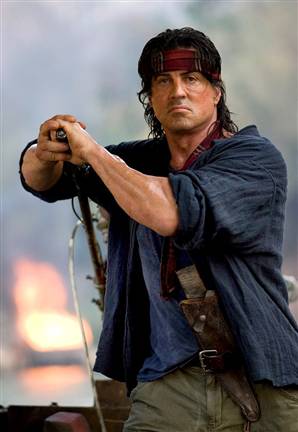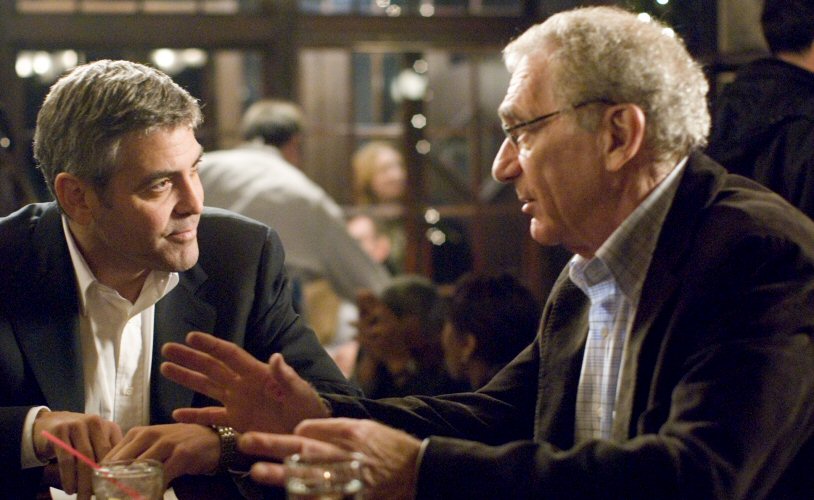Great Movie Teachers, Part 2: High School
Posted on May 28, 2008 at 8:00 am
As promised, here is my follow-up to the list of great movie professors, great movie high school teachers. Another list of grade school teachers is in the works so stay tuned.
10. Dead Poets Society Robin Williams inspires his students not just with the thrill of poetry but with the thrill of independent thinking.
9. To Sir, With Love Sidney Poitier stars in this fact-based story of a teacher in a poor neighborhood in the East End of London. He teaches them the importance of respect for themselves and each other, starting with calling him “Sir.” You can also see Poitier as part of an unruly class with a dedicated young teacher in Blackboard Jungle
.
8. Coach Carter What makes this fact-based story different from the usual inspiring-coach-shows-underdog-team-how-to-work-hard-and-help-each-other is that all that is just the beginning of the story. The team is undefeated on the court, but Coach Carter (Samuel L. Jackson) benches them all because their academic performance is not up to his standards.
7. Up the Down Staircase Sandy Dennis is the young, idealistic teacher almost swallowed up in an enormous New York high school, based on the fact-based novel by Bel Kaufman.
6. The Trouble with Angels Jane Trahey’s memoir of her experience in a Catholic girls’ boarding school inspired this rollicking story of rebellious students (Hayley Mills and June Harding) and the Mother Superior (Rosalind Russell) who understands them better than they thought. See also: Whoopi Goldberg teaching parochial school students played by future stars Jennifer Love Hewitt and Lauren Hill in “Sister Act 2.” The wonderful Mary Wickes appears as a nun in both movies.
5. Mr. Holland’s Opus Like many of the teachers in these films, Mr. Holland (Richard Dreyfuss) does not let the bureaucracy and his own conflicts about whether he wants to teach prevent him from touching the lives of a generation of students. Watch for Terrance Howard in a small role. And I dare you not to cry in that last scene.
4. Goodbye, Mr. Chips Robert Donat beat Clark Gable’s performance as Rhett Butler for the Best Actor Oscar in his role as “Mr. Chips,” who overcomes his initial shyness and reserve to become an inspiring figure in the lives of three generations of boys.
3. October Sky Another real-life story, this time based on a book by the grateful student who was so inspired by the science teacher (played by Laura Dern) in his tiny mining town school that he became a NASA rocket scientist. Be sure to wait for the clips of the real-life teacher during the ending credit sequence.
2. OT:OUR TOWN. A Famous American Play in an Infamous American Town This is not based on a real-life story — it is a real-life story, a documentary about a teacher who has her inner-city students put on a production of those most venerable (if white-bread) of American plays, Thornton Wilder’s “Our Town.” Watching the students really make the story their own makes this a mesmerizing film and as we watch, we, too, become part of the lucky classroom of teacher Catherine Borek. Other great documentaries about real-life teachers include “He Makes Me Feel Like Dancin'” and the follow-up Who’s Dancin’ Now?
, “Small Wonders,” which inspired the Meryl Streep movie “Music of the Heart,” and the magnificent French film about a one-room schoolhouse, To Be and to Have
.
1. Stand and Deliver Edward James Olmos is electrifying as Jaime Escalante, the teacher who insisted that the inner-city students everyone else had given up on could excel in calculus.

 Same “stick it to the man” story. Same stoic, emotionally damaged but still a fighting machine (mean, yes; lean, not so much) who can take on a hundred guys with guns because he is so well trained and so pure of heart.
Same “stick it to the man” story. Same stoic, emotionally damaged but still a fighting machine (mean, yes; lean, not so much) who can take on a hundred guys with guns because he is so well trained and so pure of heart. 5.
5.